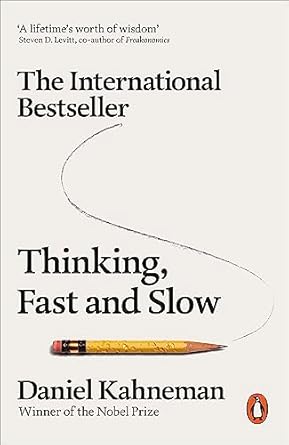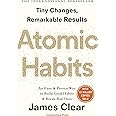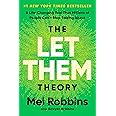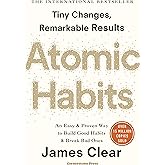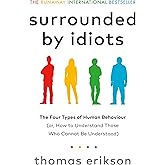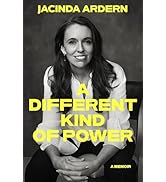
Download the free Kindle app and start reading Kindle books instantly on your smartphone, tablet or computer—no Kindle device required.
Read instantly on your browser with Kindle for Web.
Using your mobile phone camera, scan the code below and download the Kindle app.



 Audible sample
Audible sample Follow the author
OK
Thinking, Fast and Slow Paperback – 2 July 2012
Purchase options and add-ons
Why is there more chance we'll believe something if it's in a bold type face? Why are judges more likely to deny parole before lunch? Why do we assume a good-looking person will be more competent? The answer lies in the two ways we make choices- fast, intuitive thinking, and slow, rational thinking. This book reveals how our minds are tripped up by error and prejudice (even when we think we are being logical), and gives you practical techniques for slower, smarter thinking, enabling you to make better decisions at work, at home, and in everything you do.
- Print length624 pages
- LanguageEnglish
- PublisherPenguin Press
- Publication date2 July 2012
- Dimensions3.06 x 12.9 x 19.8 cm
- ISBN-100811227804
- ISBN-13978-0141033570
Frequently bought together

What other items do customers buy after viewing this item?
 This is the essence of intuitive heuristics: when faced with a difficult question, we often answer an easier one instead, usually without noticing the substitution.Highlighted by 57,444 Kindle readers
This is the essence of intuitive heuristics: when faced with a difficult question, we often answer an easier one instead, usually without noticing the substitution.Highlighted by 57,444 Kindle readers The gorilla study illustrates two important facts about our minds: we can be blind to the obvious, and we are also blind to our blindness.Highlighted by 43,547 Kindle readers
The gorilla study illustrates two important facts about our minds: we can be blind to the obvious, and we are also blind to our blindness.Highlighted by 43,547 Kindle readers This remarkable priming phenomenon—the influencing of an action by the idea—is known as the ideomotor effect.Highlighted by 28,578 Kindle readers
This remarkable priming phenomenon—the influencing of an action by the idea—is known as the ideomotor effect.Highlighted by 28,578 Kindle readers
From the brand

-
Pre-order Now
-
Worth the Hype
-
Cozy Colouring
-
New Releases
-
Children's Books
-
Bestsellers
-
Cookbooks
-
Health and Wellbeing
-
Penguin Classics
From the Publisher




Product description
Review
Absorbing, intriguing...By making us aware of our minds' tricks, Kahneman hopes to inspire individuals and organisations to identify strategies to outwit them -- Jenni Russell ― Sunday Times
Profound . . . As Copernicus removed the Earth from the centre of the universe and Darwin knocked humans off their biological perch, Mr. Kahneman has shown that we are not the paragons of reason we assume ourselves to be ― The Economist
[Thinking, Fast and Slow] is wonderful, of course. To anyone with the slightest interest in the workings of his own mind, it is so rich and fascinating that any summary would seem absurd -- Michael Lewis ― Vanity Fair
It is an astonishingly rich book: lucid, profound, full of intellectual surprises and self-help value. It is consistently entertaining and frequently touching, especially when Kahneman is recounting his collaboration with Tversky . . . So impressive is its vision of flawed human reason that the New York Times columnist David Brooks recently declared that Kahneman and Tversky's work 'will be remembered hundreds of years from now,' and that it is 'a crucial pivot point in the way we see ourselves.' They are, Brooks said, 'like the Lewis and Clark of the mind' . . . By the time I got to the end of Thinking, Fast and Slow, my skeptical frown had long since given way to a grin of intellectual satisfaction. Appraising the book by the peak-end rule, I overconfidently urge everyone to buy and read it. But for those who are merely interested in Kahenman's takeaway on the Malcolm Gladwell question it is this: If you've had 10,000 hours of training in a predictable, rapid-feedback environment-chess, firefighting, anesthesiology-then blink. In all other cases, think ― The New York Times Book Review
[Kahneman's] disarmingly simple experiments have profoundly changed the way that we think about thinking . . . We like to see ourselves as a Promethean species, uniquely endowed with the gift of reason. But Mr. Kahneman's simple experiments reveal a very different mind, stuffed full of habits that, in most situations, lead us astray -- Jonah Lehrer ― The Wall Street Journal
This is a landmark book in social thought, in the same league as The Wealth of Nations by Adam Smithand The Interpretation of Dreams by Sigmund Freud -- Nassim Nicholas Taleb, author of 'The Black Swan'
Daniel Kahneman is among the most influential psychologists in history and certainly the most important psychologist alive today...The appearance of Thinking, Fast and Slow is a major event -- Steven Pinker, author of ― The Language Instinct
Daniel Kahneman is one of the most original and interesting thinkers of our time. There may be no other person on the planet who better understands how and why we make the choices we make. In this absolutely amazing book, he shares a lifetime's worth of wisdom presented in a manner that is simple and engaging, but nonetheless stunningly profound. This book is a must read for anyone with a curious mind -- Steven D. Levitt, co-author of 'Freakonomics'
This book is a tour de force by an intellectual giant; it is readable, wise, and deep. Buy it fast. Read it slowly and repeatedly. It will change the way you think, on the job, about the world, and in your own life -- Richard Thaler, co-author of 'Nudge'
[A] tour de force of psychological insight, research explication and compelling narrative that brings together in one volume the high points of Mr. Kahneman's notable contributions, over five decades, to the study of human judgment, decision-making and choice . . . Thanks to the elegance and force of his ideas, and the robustness of the evidence he offers for them, he has helped us to a new understanding of our divided minds-and our whole selves -- Christoper F. Chabris ― The Wall Street Journal
Thinking, Fast and Slow is a masterpiece - a brilliant and engaging intellectual saga by one of the greatest psychologists and deepest thinkers of our time. Kahneman should be parking a Pulitzer next to his Nobel Prize -- Daniel Gilbert, Professor of Psychology, Harvard University, author of 'Stumbling on Happiness', host of the award-winning PBS television series 'This Emotional Life'
A major intellectual event . . . The work of Kahneman and Tversky was a crucial pivot point in the way we see ourselves -- David Brooks ― The New York Times
Kahneman provides a detailed, yet accessible, description of the psychological mechanisms involved in making decisions -- Jacek Debiec ― Nature
This book is one of the few that must be counted as mandatory reading for anyone interested in the Internet, even though it doesn't claim to be about that. Before computer networking got cheap and ubiquitous, the sheer inefficiency of communication dampened the effects of the quirks of human psychology on macro scale events. No more. We must now confront how we really are in order to make sense of our world and not screw it up. Daniel Kahneman has discovered a path to make it possible -- Jaron Lanier, author of You Are Not a Gadget
For anyone interested in economics, cognitive science, psychology, and, in short, human behavior, this is the book of the year. Before Malcolm Gladwell and Freakonomics, there was Daniel Kahneman who invented the field of behavior economics, won a Nobel...and now explains how we think and make choices. Here's an easy choice: read this ― The Daily Beast
I will never think about thinking quite the same. [Thinking, Fast and Slow] is a monumental achievement -- Roger Lowenstein ― Bloomberg/Businessweek
A terrific unpicking of human rationality and irrationality - could hardly have been published at a better moment. Kahnemann is the godfather of behavioural economics, and this distillation of a lifetime's thinking about why we make bad decisions - about everything from money to love - is full of brilliant anecdote and wisdom. It is Kahnemann's belief that anyone who thinks they know exactly what is going on hasn't understood the question; as such it's the perfect gift for opinionated family members everywhere. -- Tim Adams ― Observer Books of the Year
The book I most want to be given is Thinking, Fast and Slow by Daniel Kahneman. I'm a speedy thinker myself, so am hoping to be endorsed in that practice. -- Sally Vickers ― Observer Books of the Year
In this comprehensive presentation of a life's work, the world's most influential psychologist demonstrates that irrationality is in our bones, and we are not necessarily the worse for it -- 10 Best Books of 2011 ― New York Times
Selected by the New York Times as one of the 100 Notable Books of 2011 ― New York Times
Book Description
About the Author
Product details
- ASIN : 0141033576
- Publisher : Penguin Press; 1st edition (2 July 2012)
- Language : English
- Paperback : 624 pages
- ISBN-10 : 0811227804
- ISBN-13 : 978-0141033570
- Dimensions : 3.06 x 12.9 x 19.8 cm
- Best Sellers Rank: 46 in Books (See Top 100 in Books)
- Customer Reviews:
About the author

Daniel Kahneman (Hebrew: דניאל כהנמן, born March 5, 1934) is an Israeli-American psychologist notable for his work on the psychology of judgment and decision-making, as well as behavioral economics, for which he was awarded the 2002 Nobel Memorial Prize in Economic Sciences (shared with Vernon L. Smith). His empirical findings challenge the assumption of human rationality prevailing in modern economic theory. With Amos Tversky and others, Kahneman established a cognitive basis for common human errors that arise from heuristics and biases (Kahneman & Tversky, 1973; Kahneman, Slovic & Tversky, 1982; Tversky & Kahneman, 1974), and developed prospect theory (Kahneman & Tversky, 1979).
In 2011, he was named by Foreign Policy magazine to its list of top global thinkers. In the same year, his book Thinking, Fast and Slow, which summarizes much of his research, was published and became a best seller. He is professor emeritus of psychology and public affairs at Princeton University's Woodrow Wilson School. Kahneman is a founding partner of TGG Group, a business and philanthropy consulting company. He is married to Royal Society Fellow Anne Treisman.
In 2015 The Economist listed him as the seventh most influential economist in the world.
Bio from Wikipedia, the free encyclopedia. Photo by see page for author [Public domain], via Wikimedia Commons.
Customer reviews
Customers say
Customers find the book readable and entertaining, with one noting its well-structured format for comprehension. Moreover, they appreciate its insightful content, particularly the examples used to explain concepts, and how it helps develop critical thinking methods.
AI-generated from the text of customer reviews
Select to learn more
Customers find the book readable and entertaining, with one customer noting its well-structured format that enhances comprehension.
"...are experiments by different famous psychologists and explanations included in the book, allowing yourself to experience the psychological..." Read more
"Great book to read and learn critical thinking methods, it opens up your eyes n normal stuff that we are lazy to discover and give you a new..." Read more
"...Overall, a fantastic book if you want to understand the way your mind works and how you make decisions" Read more
"...Get out a grey lead and get underlining. Its amazing, insightful, eye opening and so much of it I'll forget - until I reference it again..." Read more
Customers find the book insightful, appreciating its critical thinking methods and examples that explain concepts.
"...There are experiments by different famous psychologists and explanations included in the book, allowing yourself to experience the psychological..." Read more
"...book to read and learn critical thinking methods, it opens up your eyes n normal stuff that we are lazy to discover and give you a new perspective." Read more
"...processes into two systems - fast and intuitive, and slow and deliberate is fascinating and really makes you rethink how you approach everything..." Read more
"...Get out a grey lead and get underlining. Its amazing, insightful, eye opening and so much of it I'll forget - until I reference it again..." Read more
Reviews with images
Eye opener
Top reviews from Australia
There was a problem filtering reviews. Please reload the page.
- Reviewed in Australia on 22 February 2025Verified PurchaseAs an elementary student in psychology, this book is amazing. The language is easy to understand and the book itself is entertaining. There are experiments by different famous psychologists and explanations included in the book, allowing yourself to experience the psychological phenomenon yourself.
The only unhappy thing about the book is that it’s unfriendly to highlighting, as seen in the photo.
 As an elementary student in psychology, this book is amazing. The language is easy to understand and the book itself is entertaining. There are experiments by different famous psychologists and explanations included in the book, allowing yourself to experience the psychological phenomenon yourself.
As an elementary student in psychology, this book is amazing. The language is easy to understand and the book itself is entertaining. There are experiments by different famous psychologists and explanations included in the book, allowing yourself to experience the psychological phenomenon yourself.
The only unhappy thing about the book is that it’s unfriendly to highlighting, as seen in the photo.
Images in this review
- Reviewed in Australia on 29 January 2025Verified PurchaseGreat book to read and learn critical thinking methods, it opens up your eyes n normal stuff that we are lazy to discover and give you a new perspective.
- Reviewed in Australia on 24 February 2025Verified PurchaseThinking, Fast and Slow is a deep dive into how we think, make decisions, and form judgments. The way Daniel Kahneman breaks down our thought processes into two systems - fast and intuitive, and slow and deliberate is fascinating and really makes you rethink how you approach everything from simple tasks to big life decisions.
Overall, a fantastic book if you want to understand the way your mind works and how you make decisions
- Reviewed in Australia on 21 August 2024Verified PurchaseYou know when you come across a text book and it reads effortlessly?
This is not one of those.
Get out a grey lead and get underlining.
Its amazing, insightful, eye opening and so much of it I'll forget - until I reference it again at some point.
To give you an idea, this now holds number one spot of my "hardest books to read" list, and I still haven't finished it! The title which held that position for close to 10 years prior to this, was What Is This Thing Called Science, by Alan F Chalmers.
There is a quote by Richard Taylor on the back which says "Buy it fast. Read it slowly. It will change the way you think" - That's accurate.
- Reviewed in Australia on 6 October 2022Verified PurchaseA delightful exercise in mind expansion. I thoroughly enjoyed this book and the many, often unsettling, discoveries on how we perceive the world, how we think we perceive the world, and how the world should be perceived.
I would consider this a must read for anybody in the business of risk and forecasting, and also anybody who gets a kick out of surprising discoveries on how our minds work.
- Reviewed in Australia on 25 February 2021Verified PurchaseThe printing was not good
- Reviewed in Australia on 11 September 2024Verified PurchaseVery insightful book that I will be revisiting again in the future. This copy was already used, but in great condition, with only some slight aging/discolouration on the cover.
- Reviewed in Australia on 25 March 2024Verified PurchaseClassic text but the print in this edition is tiny. Hard to read
Top reviews from other countries
 Vijit SinghReviewed in the United Arab Emirates on 24 September 2021
Vijit SinghReviewed in the United Arab Emirates on 24 September 20215.0 out of 5 stars As per my expectations
Verified PurchaseHard cover. Very good quality. Finished reading first two chapters. The book essentially talks about how the mind works. This is helpful in identifying our biases and actively countering them. So definitely a read for those who are interested in understanding how does our brain impact our actions.
-
 Juan DussanReviewed in France on 5 February 2024
Juan DussanReviewed in France on 5 February 20245.0 out of 5 stars Assez lourd pour une lecture au lit
Verified PurchaseExcellent livre mais je l'ai trouvé très difficile à lire car mon temps de lecture dans la journée est juste avant le coucher et bien... avec ce livre je n'ai pu lire que 2 pages maximum.
Il contient beaucoup de raisonnements profonds et, à certains moments, des mathématiques, ce qui le rend un peu dense à lire à la fin de la journée (du moins dans mon cas).



